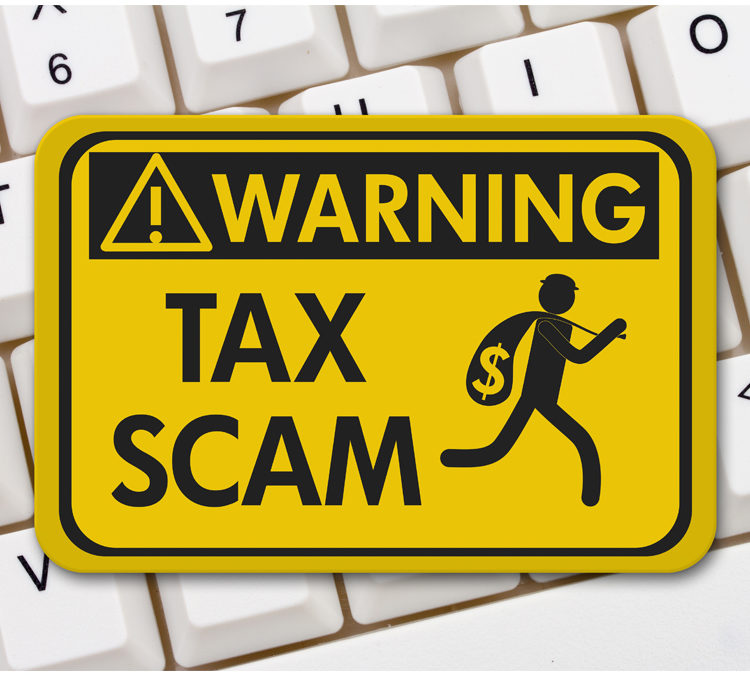IRS Warns Not To Fall For These Tax Scams
Your phone rings and the caller ID displays an unfamiliar number. When you answer, you’re met with an aggressive-sounding individual who immediately begins scolding you for “back taxes” you owe. He quickly demands that you must make a payment in full, on the phone with him, or a warrant will be issued for your arrest. You try to ask for more information about what taxes he is referring to and he asks you if you think this is a joke.
Unfortunately, this is not. There are too many tax scams and variations to count, but similarities do tend to show up year after year.
Don’t fall for these Tax Scams:
1. Fake “IRS agents” are contacting taxpayers by mail or phone explaining that tax refunds were erroneously deposited into their bank account and they want the money back. NOW! They insist on something like a wire transfer or prepaid debit card. To drive home the seriousness of their demands, they will generally threaten to have the taxpayer arrested, deported, foreclosed on or have their driver’s license revoked if they don’t comply. Don’t fall for the scheme! You can call the IRS directly at 1-800-829-1040 to verify and explain the situation. The real IRS has specific rules for returning erroneous refunds. If you were indeed sent a refund check erroneously, you can write VOID on the check and return it directly to the IRS, making sure you maintain a copy for your records. If funds were wired to your account in error, you can have the wire reversed. Call your accountant and discuss the best way to proceed. Remember, the IRS ALWAYS gives you time to comply. Nothing needs to be done IMMEDIATELY.
2. The IRS generally does not communicate by email. If you have an unsolicited email that appears to be from the IRS or an organization closely linked to the IRS, such as the Electronic Federal Tax Payment System (EFTPS), it can be reported to the IRS by sending it to phishing@irs.gov.
3. IRS warns that “fake” charities attempt to attract donations from unsuspecting contributors. Scammers looking to take advantage of familiarity will create a name that is similar to a legitimate charity. If you receive a donation request from a charity, ask for the charity’s Employer Identification Number (EIN) and verify their authenticity with the IRS Select Check. These fraudsters may be looking for your contributions but may also be looking to steal your identity. Don’t give out any personal financial information – including Social Security numbers or passwords. NEVER send cash. A check has more security.
With today’s powerful information technology available at the fingertips of anyone with an internet connection, scammers and con artists have adapted to using creative ways to target unsuspecting victims. The IRS Criminal Investigation Division works closely with the Department of Justice to shut down scams and prosecute the criminals behind them.
If you feel you may have been the target of a scammer, telephone scams can be reported to Treasury inspectors at 1-800-366-4484 and a complaint can be filed with the Federal Trade Commission (FTC) Complaint Assistant at www.ftc.gov and indicate “IRS telephone scam”. If you have any questions, you can speak with a Frisch Financial Advisor so we may help you determine your next best financial action.


